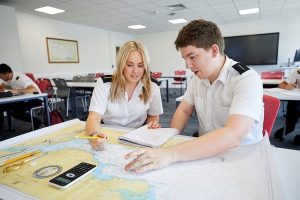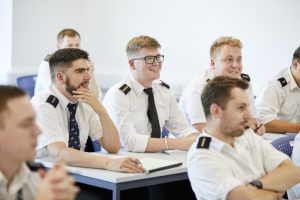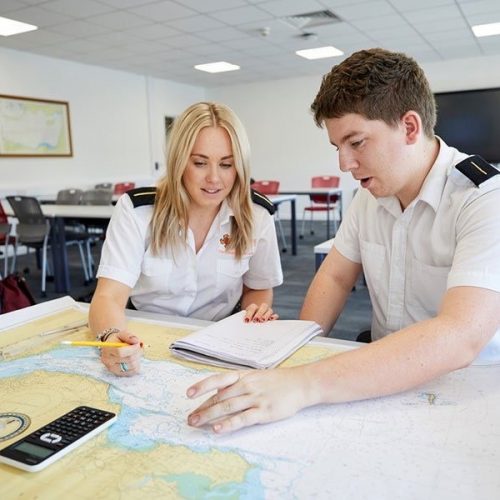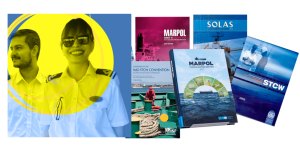The United Kingdom has a long-standing maritime heritage and remains one of the world’s leading centers for maritime education and training. With a reputation for producing world-class seafarers, the UK offers diverse pathways to a seafaring career through its well-established maritime academies, industry partnerships, and globally recognized certification programs. This article explores the structure, opportunities, and career prospects offered by maritime education in the UK.
The UK’s maritime legacy dates back to the age of exploration, when British ships navigated the globe, establishing trade routes and colonial outposts. Today, the UK continues to play a pivotal role in the global shipping industry. According to the UK Chamber of Shipping, the maritime sector contributes approximately £46 billion annually to the UK economy, supporting hundreds of thousands of jobs.
Leading Maritime Institutions in the UK
The UK is home to some of the world’s most prestigious maritime training institutions, offering specialized courses tailored to various seafaring careers. Key institutions include:
- Warsash Maritime School: Part of Solent University, it provides comprehensive officer training for deck and engineering roles.
- City of Glasgow College – Nautical Faculty: A major center for nautical science and marine engineering.
- South Shields Marine School: Renowned for its merchant navy and offshore training programs.
- Maritime and Coastguard Agency (MCA): Oversees maritime training and issues certifications ensuring compliance with international standards.
These institutions collaborate closely with shipping companies, enabling graduates to secure employment through established recruitment channels.


Pathways to a Seafaring Career
Maritime education in the UK offers several pathways depending on a student’s aspirations, including officer training, marine engineering, and maritime logistics management.
1. Deck Officer Pathway:
- Course: BSc (Hons) Nautical Science
- Eligibility: Minimum GCSEs or A-levels in science and mathematics.
- Career Progression: Cadet -> Third Officer -> Second Officer -> Chief Officer -> Captain
2. Marine Engineering Pathway:
- Course: BEng (Hons) Marine Engineering or Marine Technology
- Eligibility: A-levels in mathematics and physics or relevant technical diplomas.
- Career Progression: Junior Engineer -> Fourth Engineer -> Second Engineer -> Chief Engineer
3. Electro-Technical Officer (ETO) Pathway:
- Course: HND Marine Electrical and Electronic Engineering
- Eligibility: Relevant diplomas or work experience in electronics.
- Career Progression: ETO -> Senior ETO -> Electrical Superintendent
4. Maritime Business and Logistics Management:
- Course: BSc or MSc in Maritime Business, Logistics, and Port Management
- Eligibility: Undergraduate degree in business or logistics-related fields.
- Career Progression: Shipping Manager -> Port Operations Director -> International Trade Analyst
Curriculum and Training Modules
Maritime education programs in the UK follow a structured curriculum blending theoretical learning with practical onboard experience. Core modules include:
- Navigation and Ship Operations: Teaching navigation systems, cargo handling, and voyage planning.
- Marine Engineering and Maintenance: Covering ship engine operations, fuel management, and mechanical repairs.
- Safety and Emergency Procedures: Personal survival techniques, maritime firefighting, and medical first aid.
- International Maritime Law: Addressing regulatory compliance and maritime conventions like SOLAS and MARPOL.
Trainees are also required to complete sea-time training aboard commercial vessels, gaining practical experience under the supervision of experienced officers.
Certification and Licensing
Graduates from UK maritime academies must obtain internationally recognized certifications to work aboard merchant vessels. Key certifications include:
- Merchant Navy Training Board (MNTB) Certification: A comprehensive training standard for UK seafarers.
- Certificate of Competency (CoC): Issued by the MCA for deck and engineering officers.
- Standards of Training, Certification, and Watchkeeping (STCW): A global maritime certification ensuring compliance with IMO conventions.
These credentials are highly respected worldwide, enhancing employability in international shipping markets.
Career Opportunities and Industry Demand
Maritime graduates from UK institutions secure employment across various sectors, including merchant shipping, offshore oil and gas, shipbuilding, and logistics management. Leading shipping companies such as BP Shipping, Maersk, and Carnival UK regularly recruit from UK maritime academies. The UK Chamber of Shipping projects continued growth in maritime jobs, driven by global trade expansion, emerging shipping routes, and advancements in ship technology. As a result, well-trained maritime professionals remain in high demand.
A notable example is Warsash Maritime School’s industry-driven approach. With state-of-the-art simulators and industry partnerships, it maintains a 95% employment rate for graduates. Its alumni include master mariners, chief engineers, and senior maritime executives working globally.
Challenges in Maritime Education, and Technological Integration in Training
Maritime education in the UK, while robust, faces several challenges. Funding and infrastructure remain significant concerns, as limited government funding affects access to modern training facilities. Additionally, global competition from maritime academies worldwide intensifies the need for competitive program offerings. Rapid technological advancements also pose challenges, requiring continuous curriculum updates to keep pace with industry standards. Addressing these issues calls for increased investment in maritime education, stronger industry collaboration, and sustained research in maritime innovation.
UK maritime institutions have embraced technological advancements to enhance training outcomes. Examples include:
- Simulation Training: High-tech simulators replicate shipboard scenarios for navigation, engine management, and emergency response.
- Virtual Reality (VR): Immersive VR modules enhance safety and technical training.
- E-Learning Platforms: Online courses provide flexible learning for maritime law, logistics, and engineering.
These tools ensure that cadets gain hands-on experience in a controlled, risk-free environment.
Future Trends in Maritime Education
Future trends in maritime education in the UK point toward significant advancements driven by industry demands and technological innovation. One key area of development is the incorporation of green shipping initiatives. Educational programs are increasingly focusing on sustainability, emphasizing emissions reduction and the adoption of alternative fuel technologies to align with global environmental goals. Another critical trend is the rise of cybersecurity training. As digital threats become more sophisticated, maritime institutions are developing specialized programs to equip students with the skills needed to protect maritime infrastructure and operations from cyberattacks. Additionally, global collaboration is reshaping the educational landscape. Partnerships with international maritime institutions are expanding, providing students with broader learning opportunities and exposure to diverse maritime practices.
Overall, maritime education in the UK continues to offer structured pathways to rewarding careers in the seafaring industry. With globally recognized certifications, state-of-the-art training facilities, and strong industry connections, UK-trained maritime professionals remain competitive in the international shipping market. Sustained investment, innovation, and international collaboration will ensure that the UK retains its status as a global leader in maritime education and seafaring career development.



